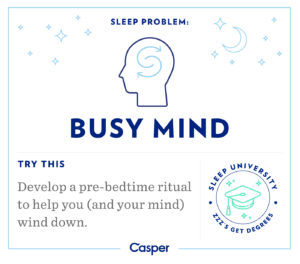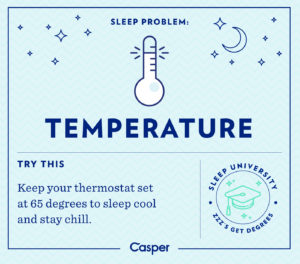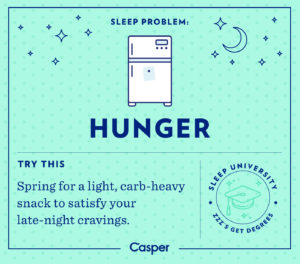Sleep deprivation is a growing epidemic. In the United States alone, an estimated 50 to 70 million adults have sleep disorders. A lack of sleep can impact every aspect of our lives from our relationships with others, to our health, and even our careers.
We require sleep in order to restore and repair body systems and without a good night’s sleep, our brains do not function properly. Chronic sleep deprivation can negatively impact the way that we think, learn, get along with others and react.
Of course, we’ve all had those bad night’s of sleep where we feel like we might be off our professional game a bit the next day. But when inadequate sleep becomes a regular pattern, it begins to do damage.
At the office, sleep-deprived employees often lack the motivation and drive to learn new things. Not only do they find it takes longer to complete tasks, but they also lack focusin getting things done and paying attention during meetings. Their creativity is also negatively impacted and it becomes difficult for them to generate new ideas. One study even revealed that sleep-deprived employees are costing their organizations an average of $2,280 a year in lost productivity.
It can be easy to push sleep to the bottom of your list of priorities when you have so much to do. But getting a good night’s sleep needs to be a priority. While there may be some factors out of our control that can interfere with our sleep habits, there are many things that we can do to improve our quality of sleep.
The most obvious one is to make sure that your bedtime necessities are up to date. A poll by the National Sleep Foundation revealed that 92 percent of people believe that a comfortable mattress is important to a good night’s sleep. If you notice any rips, tears, or lumps in your mattress or find that you are waking up with neck or lower back pain, it’s time for a new mattress. Foam mattresses are great, especially for those sleepers who switch between sleeping on their sides and backs.
If you’re looking to improve your sleep patterns and catapult your professional success, keep reading for the not so obvious ways that our sleep patterns can be disrupted as well as tips to try to solve these issues.
If you’ve had a long or particularly stressful day on the job, it can be tough to wind down and clear your mind of thoughts. Develop a pre-bedtime ritual to help signal to your brain that it’s time to fall asleep – possibly a cup of tea, a warm shower, or reading a book. Select an activity that will help tell your mind that it’s the end of the day and beginning of the night.
Everyone has their personal preference, but if you’re looking to make adjustments to improve the quality of your sleep, try setting your thermometer to 65 degrees.
Late dinner at the office? Or do you find yourself munching on snacks while watching television? Opt for a light, carb-heavy snack in the evening to avoid disrupting the quality of your sleep.




